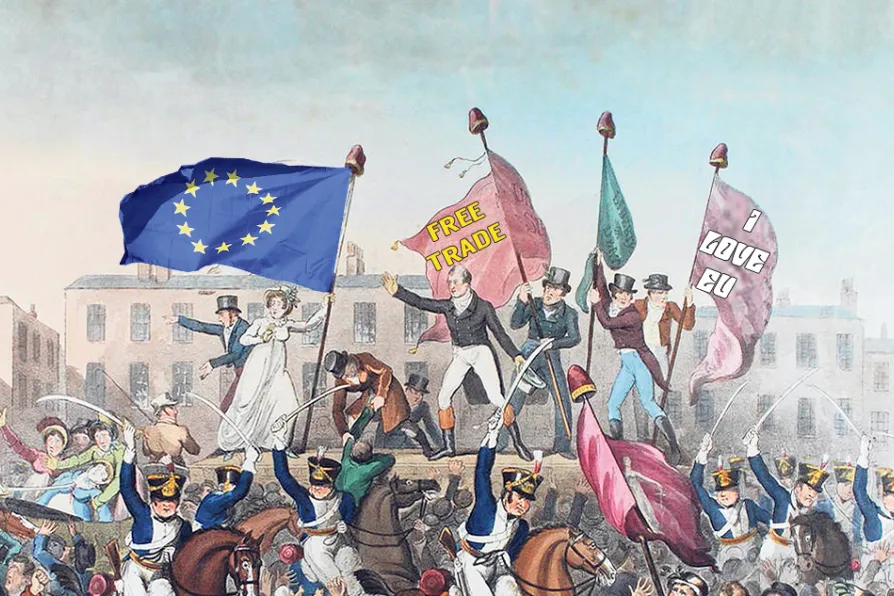As Colombia approaches presidential elections next year, the US decision to decertify the country in the war on drugs plays into the hands of its allies on the political right, writes NICK MacWILLIAM


MIKE LEIGH has made an excellent film about Peterloo — but linking the sentiments of the crowd on that August day 200 years ago with views on Brexit needs to be done with care, if, that is, it can be done at all.
This is what Leigh tried to do in a recent Guardian article however. He wrote that “Brexit is the epitome of democracy under threat” — to which some might reasonably respond that this equally applies to Remainiacs who wont accept the democratic result of the EU referendum under any circumstances.
It does suggest perhaps that Leigh’s grasp of how to make a great film is rather greater than his knowledge of history and particularly how historical events might weigh on the present.

In 1981, towering figure for the British left Tony Benn came a whisker away from victory, laying the way for a wave of left-wing Labour Party members, MPs and activism — all traces of which are now almost entirely purged by Starmer, writes KEITH FLETT

Who you ask and how you ask matter, as does why you are asking — the history of opinion polls shows they are as much about creating opinions as they are about recording them, writes socialist historian KEITH FLETT

KEITH FLETT revisits debates about the name and structure of proposed working-class parties in the past

The summer saw the co-founders of modern communism travelling from Ramsgate to Neuenahr to Scotland in search of good weather, good health and good newspapers in the reading rooms, writes KEITH FLETT














